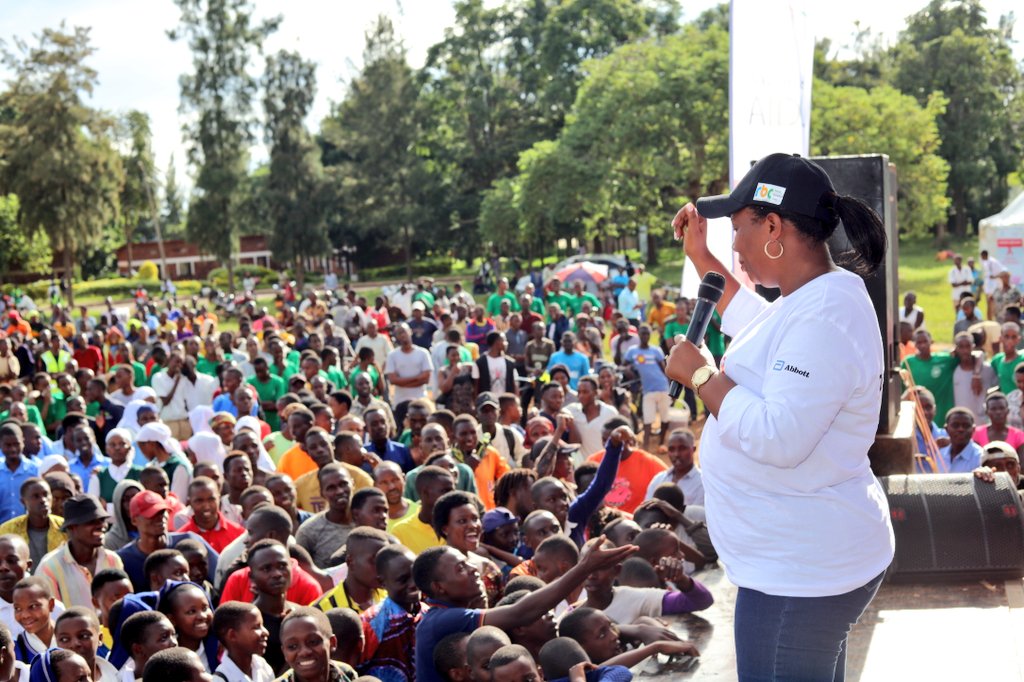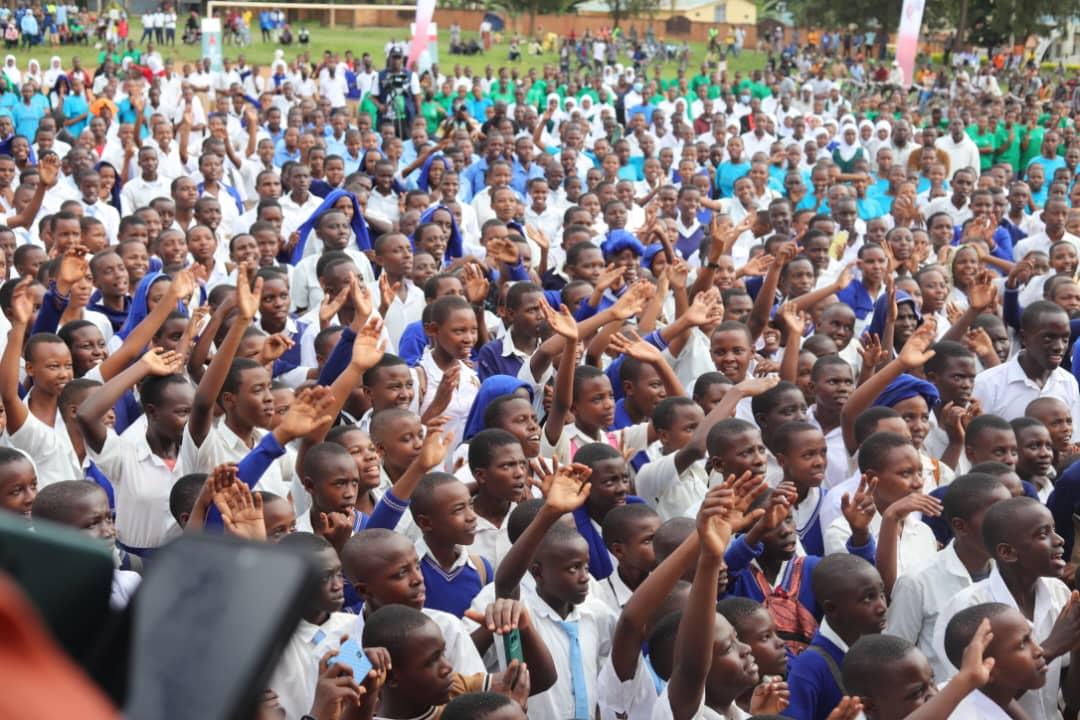
The Rwanda Biomedical Centre (RBC) is mobilizing youth in schools to actively participate in an awareness campaign aimed at strengthening community efforts to combat HIV. Organized in collaboration with the Strive Foundation, Rwamagana district, and Abbot, the initiative includes interactive sessions featuring drama and entertainment, with influencers engaging youthful students to raise awareness.
According to RBC statistics, Rwanda has a total of 219,000 people living with HIV, with a significant portion being young individuals within the school-age bracket of 15 to 24 years old.
Meanwhile, a bigger percentage of the people with HIV infection are based in Kigali and Eastern province and only 5000 people with HIV infections live in Rwamagana district, Eastern province.

Speaking to the congregation of the students gathered at Rwamagana district premises, the Director of Rwamagana Level Two Teaching Hospital, Placide Nshizirungu told members of the press that the youth are the biggest majority with high prevalent figures disclosing “That’s why the government is insisting on youth to fight against the prevalence of the HIV among.”
He warned students against the risks involved with negligent behaviors that would get them contacting the disease
“HIV is still here” he warned, reminding them that “In the past, the symptoms of the HIV infection such as diarrhea, and malnourishment were visible on patients” And now that “HIV is no longer visible externally but that does not mean that HIV-AIDS is not there.
“Go to the hospitals and test yourself,” he warned them.
Officials say, HIV is more prevalent among the youth because the infections are common because the youth have no information on the HIV infections or the fact that they don’t have the access to condoms and contraceptives.

Nshizirungu advises, “it is important for the youth to use condoms and insist that the most important thing, “is to know the risks and dangers involved with HIV yet that youth are ignorant about HIV.”
It is a battle we must all fight against. We will be happy to see figures dropping down. It is a campaign sponsored by the local NGO strive Foundation, RBC, Rwamagana district and Abbot
For the school going children, testing HIV is equal to the suicide because of the stigmatization among the fellow students would be hard to handle.
“The students do not test for HIV because they believe it could cause the stigmatization,” Afisa Uwamahoro, a student of Groupe Schoolaire Rwamagana Protestant said.
“I fear that if I test HIV my fellow students could laugh at me and the demoralization it carries with knowing the status is unbearable,” she noted.
“Majority of us in our age get a lot of temptation from our male counterparts.”
Dr Ikuzo Basile, the Director of HIV Prevention Unit said HIV testing is the most important in HIV combative measures.
He said at the moment when mass testing is no longer in practice Dr Ikuzo the testing in schools or particular selected areas is prioritized.
Commenting on the Eastern province, he said, the HIV prevalence rate is high in the particular area, which hope that the community will change the mindset of HIV testing, especially in Rwamagana district.
In the pipeline, Rwanda Biomedical center is revitalizing the usage of the Anti-AIDS clubs in schools which were no longer active in schools according to the officials.
Part also of the combative measures, the RBC is engaging with the Ministry of Education on the project of integrating the HIV prevention awareness campaigns on curriculums.
“It’s a project in the pipeline,” he further commented.
In fact, some countries including the U.S have claimed the invention of the HIV medicine but the World Health Organization lagged upon their approval.
The 2023 figures indicate there are approximately 39 million people living with HIV and more than two thirds of the new infections worldwide are in sub-Saharan Africa.
